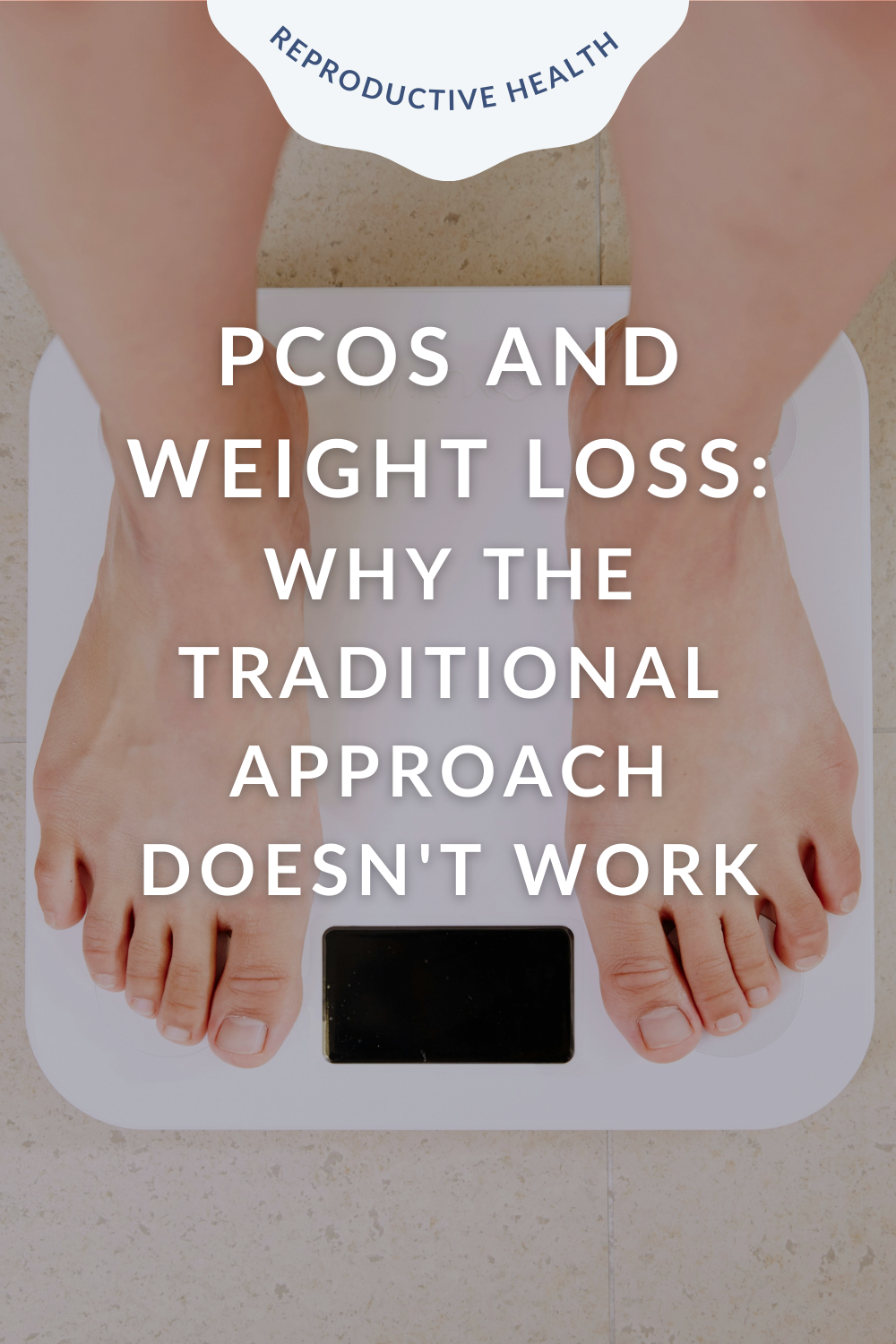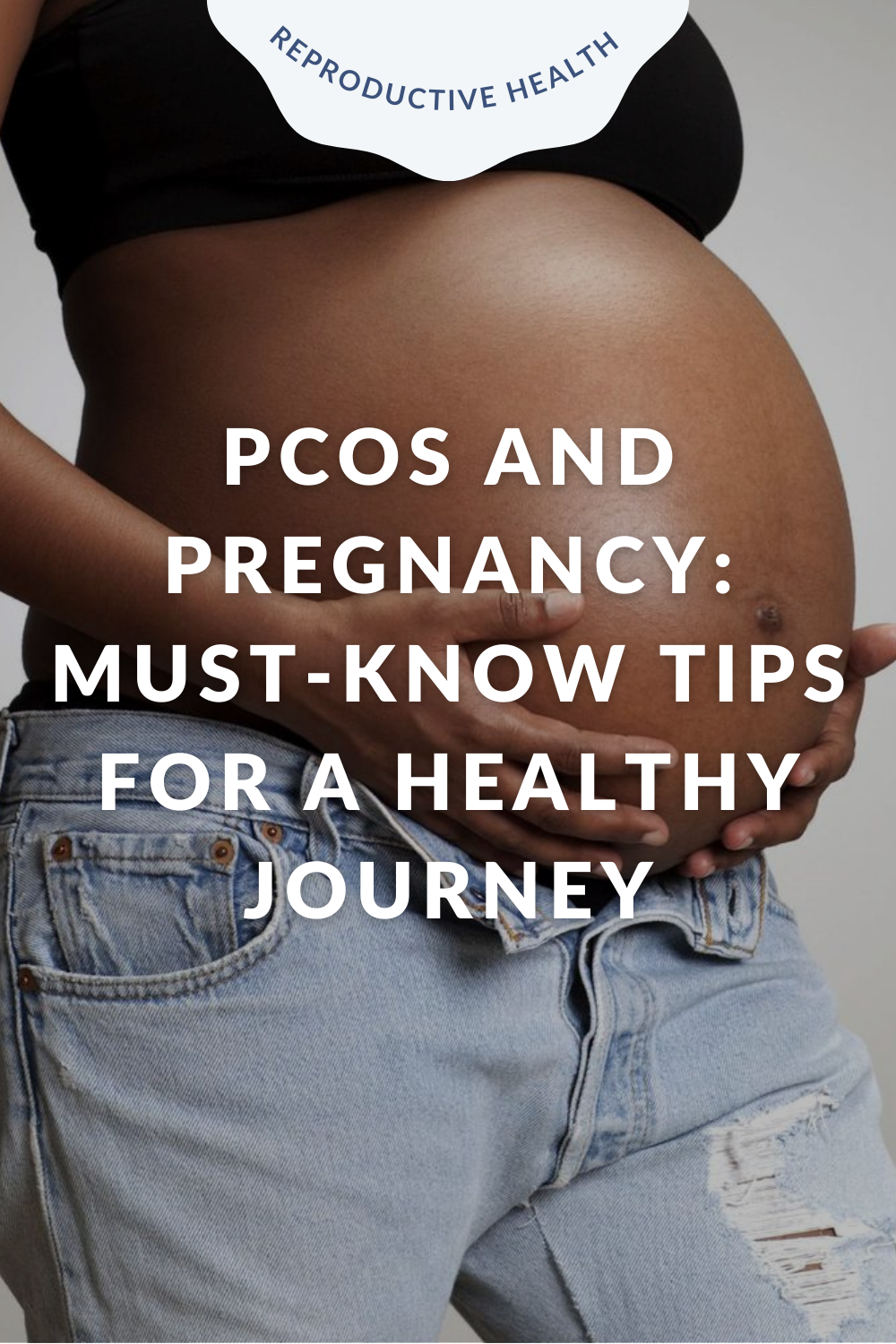Nutrition and Lifestyle for PCOS Management
What is Polycystic Ovary Syndrome?
In recent years, you’ve likely known someone who’s been diagnosed with Polycystic Ovary Syndrome (PCOS). Or perhaps you’re living with it yourself!
If so, you’re not alone. PCOS is the most common endocrine disorder of pre-menopausal people with ovaries (1). It affects 6-10% of this population, and is only recently gaining traction in nutrition and lifestyle therapy (1).
PCOS is characterized by excessive androgen hormones, ovulatory dysfunction (like delayed or missing periods) and/or excess follicles on ovaries. For adults, a diagnosis requires two out of three of these characteristics (2).
Living with PCOS can increase the risk of developing Type 2 diabetes, heart disease and mood disorders. On top of that, day-to-day challenges of living with PCOS include excessive body hair, acne, intense cravings, mood swings, hair thinning, chronic fatigue, missing and painful periods, delayed fertility.
Thankfully, gone are the days where those with PCOS are simply told there’s no solution beyond medication. Nowadays, there’s emerging research on nutrition and lifestyle interventions to help those with PCOS manage their symptoms and reduce risk for other diseases like diabetes and heart disease (3).
The Importance of Nutrition for PCOS Management
It’s estimated that 70% of people with PCOS have insulin resistance - regardless of body size (4). Insulin is a hormone that’s released in response to eating glucose (carbs) - think of it like a key that unlocks your cell walls so glucose can move in and be used as energy.
Insulin is a growth hormone. In bodies with PCOS, insulin resistance can develop, where the “keys” no longer fit into the cell walls. The body continues to produce insulin, leading to high circulating insulin in the blood. Plus, the blood sugars can remain high, since they don’t move into the cells!
This creates a vicious cycle. High insulin levels can trigger the ovaries to overproduce androgens, also known as male sex hormones. Excess androgens are responsible for acne, hair growth on the body and lack of menstrual periods.
High levels of insulin also promote weight gain, especially in the mid-section of the body - this is why many people may rapidly gain weight without changes to eating or exercise. In a world where weight stigma and discrimination is so rampant, this creates an extra challenge for those with PCOS. It’s the perfect storm to increase risk for developing disordered eating and mood disorders. Therefore, increasing insulin sensitivity is an important goal for managing PCOS.
Being proactive about promoting heart health is also of great importance. Elevated lipid panels are more common in PCOS, and those with this syndrome are at a higher risk for heart disease (1). Finally, low-grade, chronic inflammation is a key feature of PCOS.
To address these factors, focus on low glycemic index carbs, lean proteins and healthy fats. Pay special attention to soluble fibres for heart health and insulin resistance. Incorporate principles of the Mediterranean diet. It’s shown to help reduce inflammation in those with PCOS and includes heart-healthy foods like fatty fish, legumes, leafy greens, nuts, seeds and whole grains. Check out this article on how to adapt the Mediterranean diet to different cuisines (pst..I share some East Asian examples).
Mindful eating and PCOS
Many people with PCOS can find themselves stuck on an endless cycle of bingeing and restricting. Cravings, disordered eating behaviours and fad dieting are the most commonly reported challenges.
There’s many layers to unpack, but start exploring mindfulness with food - this can be a powerful way to break free from this cycle. Mindful eating is eating with intention and paying full attention to the experience. Start with tuning into your body’s cues and noticing how it connects to your mind and food. Are you hungry? Is it time to eat? How does the food taste? How is your body responding? Are you approaching comfortable fullness?
The key is replacing all judgement with curiosity about how your food choices and eating patterns impact your body.
Working with a dietitian to help you discover how to build a better relationship with food, a skill that will serve you for life.
Supplements that may help with PCOS
Supplements may help to increase insulin sensitivity, reduce inflammation and improve reproductive health. But remember, supplements are meant to be an add-on to a varied and balanced diet. Here are some common supplements that may help with PCOS management:
Inositol
Vitamin D
Omega 3
Magnesium
N-acetyl cysteine
Keep in mind that supplement recommendations should be individualized and can interact with certain medications, so talk to a Registered Dietitian or Physician to learn more.
Check out my this link to my recommended PCOS supplements and other healthy lifestyle products.
The Role of Movement, Stress and Sleep for PCOS
People with PCOS may have increased prevalence of mood disorders, like anxiety and depression (5). This can be exacerbated by poor sleep quality; sleep disturbances are more common in PCOS as well (6). Although the relationship remains unclear, we know one thing: that we can try our best to manage what’s within our control.
If you’re feeling increased stress, work with a qualified therapist to discover coping mechanisms. Practice sleep hygiene - remove screens an hour before bed, sleep and wake at the same times daily, and engage in a relaxing activity before bed, like yoga or meditation.
Movement is also an essential part of PCOS management. Studies show that exercising can help reduce insulin levels and improve lipid panels in people with PCOS (7). Remember, it doesn’t have to be all or nothing. Start with a brisk walk outdoors or yoga at home. Try lifting weights or going on a bike ride. Increase exercise frequency at a pace that feels right for you.
Three Steps to Manage your PCOS Today
Focus on consistent meal times.
Focus on consistent meals throughout the day. For some, this can look like three meals + one snack. Eating at regular intervals can help stabilize insulin levels. Plus, it can provide you with a steady stream of energy and help reduce fatigue. Finally, for those struggling with bloating and indigestion with PCOS, eating frequent meals can provide some digestive relief.Lean proteins, fibre, healthy fats.
At each meal, focus on incorporating protein, healthy fat, and fibre. This combination of nutrients can help provide a low and slow blood sugar and insulin response in the body. Plus, it is very satiating and can help prevent intense hunger and cravings.Gentle movement, stress management, sleep hygiene.
Lifestyle matters, too! Engage in gentle movement - for example, yoga, walking or light weights 2-3 times a week. Be mindful of stress triggers and develop coping mechanisms where you can. Practice sleep hygiene and aim for 7-8 hours per night. All of these in combination can work to help prevent further insulin resistance, reduce inflammation and improve overall well-being with PCOS.
Interested in more personalized nutrition support to manage your pesky PCOS symptoms?
Work with me in my 1-on-1 Nutrition Coaching Programs to receive personalized nutrition guidance, personalized meal plans and unlimited messaging support to create lasting change.
Or, check out these PCOS Meal Plans designed to provide delicious, hormone-balancing recipes that are based on balance, not restriction.
Finally, enrol in the Complete Guide to PCOS Management course to gain confidence, clarity, and practical tools to manage your condition in the long-term, while regaining the joy in eating.
References
1.https://pubmed.ncbi.nlm.nih.gov/21562798/#:~:text=Polycystic%20ovary%20syndrome%20(PCOS)%20is,infertility%2C%20hirsutism%2C%20and%20acne.
2. https://www.ncbi.nlm.nih.gov/pmc/articles/PMC6676075/
3. https://www.ncbi.nlm.nih.gov/pmc/articles/PMC6489978/
4. https://pubmed.ncbi.nlm.nih.gov/27510482/
5. https://pubmed.ncbi.nlm.nih.gov/30131078/
6. https://www.ncbi.nlm.nih.gov/pmc/articles/PMC5799701/
7. https://pubmed.ncbi.nlm.nih.gov/29896935/
Hi! I’m Trista
A Registered Dietitian and reproductive health expert. I’m here to help you gain confidence to overcome your Polycystic Ovary Syndrome and digestive health woes, while bettering your relationship with food.













